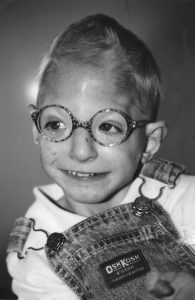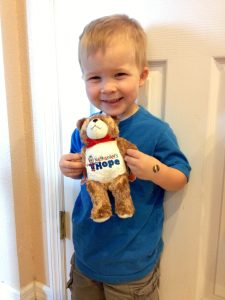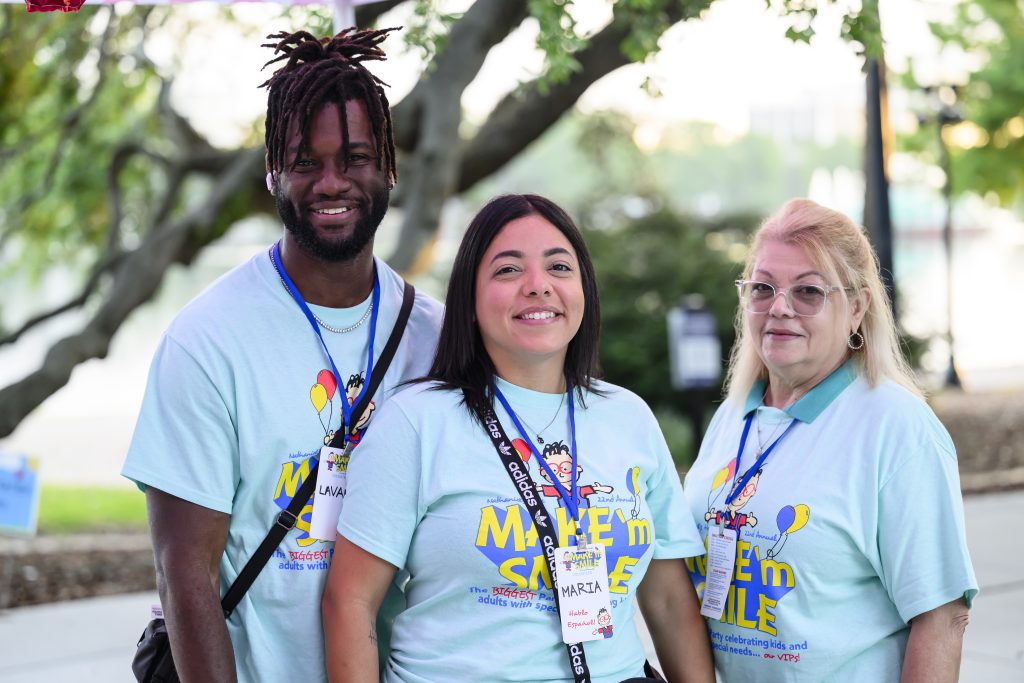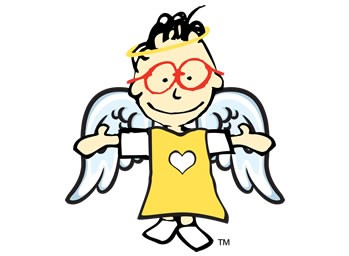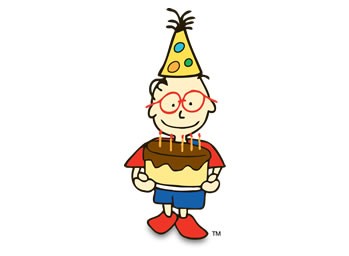Below are some tips that will help you to understand better Children with Special Needs and what you can do to help their Families.
Finding That Special Gift for A Special Child
By Hilary Gibson
- A caregiver isn’t just someone who is restricted to taking care of only an elderly or ill family member. Caregiving frequently encompasses the duties of regular parenting, but goes way beyond this role, particularly when a special needs child is the one being given the unique care and attention they need..
- With all of the advances in medical science and research, the origins and cures for several childhood disorders, such as autism, still continue to elude the medical detectives. What is definitely known about autism is that it is a neurological disorder which usually affects the processing, integrating, and organizing of information in the brain, causing the child to have problems with communication, social interaction, functional skills, and educational performance. To pin point any one, true cause for autism is still nearly impossible, which leads one to believe that there may be too many causes to categorize. Certain outside contributors that may cause autism include some form of trauma at birth, prenatal viruses, and possibly some childhood vaccinations. None of these have been conclusively shown to cause autism, however, it does appear that the one commonality that may lend itself to being a cause is anything that may disturb or hamper the central nervous system of a child, causing it to develop abnormally.
- Since so little is known about autism, it may be difficult for parents, friends and relatives to understand what is going on inside the child’s mind, and what type of toys or activities would be enjoyable, stimulating, and help to enhance the abilities and progression of the child. It’s really no different choosing a toy for an autistic child than it is for any child, however, here are a few helpful things to keep in mind:
- Try to find a toy or gift that will be fairly unbreakable. Selecting toys made of wood, metal, or heavy plastic.
- For younger children, obviously get something that doesn’t have any small pieces that could be ingested, become stuck in their throat, or hurt other parts of their body.
- Find toys that can be played with both when the child is wanting to be alone, or with other people, allowing for social integration with the child.
- Don’t purchase games that require a lot of people to play, since autistic children often prefer to play alone. Games also have too many small pieces that may be too confusing and possibly dangerous for the child. However, games that have large pieces, such as dominoes, may be appropriate for older children while under supervision.
- Purchase toys that are appropriate for the child’s developmental age, not necessarily their true, chronological age.
- Learn about the likes and dislikes of the child. It is even safe to say that autistic children can be somewhat “obsessive” with certain colors, patterns, or toys that help them repeat a certain sound or action over and over, so it is good to buy toys that will appeal to them for this purpose as well. Any toys or large-pieced games that form patterns or lines are great.
- Lego’s for older children and Duplo’s for younger children are an excellent gift since the multiple parts can be assembled (these building systems are different from other toys or games that just have tons of little pieces which are not necessarily utilized). Depending upon the child’s imagination, many autistic children enjoy creating different types of shapes and thoroughly enjoy the assembly process.
- Find out what kind of movies or shows the child likes to watch. Getting them a video or DVD can be a terrific gift.
- Fixations with clothes or shoes is also very typical, so buying a pair of shoes or getting the kind of clothes they like will also make for good gift giving.
- Items that can be used indoors and provide exercise are also good gifts, like a stationary bike (a previously owned one can be inexpensive).
- There are many different type of affordable toy computers on the market that teach math, reading, spelling, etc. Try to find one that has multi-sensory components which allow the child to not only learn, but to be creative as well.
- To help you with even more gift ideas, here’s a list of websites which offer toys, games that are appropriate for autistic kids: Adapt Net; Auti Toys; Come Play With Me; Dragonfly Toys (US); Dragonfly Toys (Canada); Enabling Devices; Honey the Signing Bear; Science Products; TFH (US) Limited; The Center for Creative Play; and Thomas the Tank Engine.
- For most of us finding time to keep up with our own lives is a daunting, full-time job. The idea of reaching out to another family may seem too much to add to already hectic days.
- Our desire is to help share ideas that are simple but carry a mighty blessing for a family caring for a special needs child. We, at Nathaniel’s Hope will be filling the pages of our website with ideas, education, encouragement, and activities you can use to reach out to a family you know or let us connect you with a family in need of a friend. As we build our “Be A Buddy” program you can help provide respite for families.
- Let’s start out with a few simple ideas if you already know a family with a special needs child: When you are making a run to the market, call and ask if you can pick up something for them also. Invite a sibling to go with you on park or movie outings. Ask them what is an especially hectic day for them and offer to bring them dinner on that day. (weekly, monthly, one time…you decide!)
- Keep checking back! There is more to come…
- Disability – a condition that limits the ability to perform certain tasks in the same way that most people do.
- Apnea – Apnea is a term used to describe the temporary cessation of spontaneous breathing. Infantile apnea occurs in children under one year of age. There are three types of apnea: obstructive, central, and mixed. Apnea may occur because of neurological impairment of the respiratory rhythm or obstruction of air flow through the air passages. The symptoms of infantile apnea include the stoppage of breathing during sleep, an abnormal discoloration to the skin and sometimes an unusually slow heartbeat.
- Apraxia – This is a neurological condition where there is an inability to perform learned (familiar) movements on when asked, even though the request is understood and there is a willingness to perform the movement. The person simply cannot accomplish the act. Children with significant Apraxia need assistance with daily living skills.
- Asperger’s Syndrome – Children with this disorder experience the inability to understand the feelings of others, abnormal single-mindedness, lack of verbal skills, insensitivity to social cues, withdrawal and obsessive indulgence in special interests. Many clinicians believe that Asperger’s syndrome is a sub-type of autism that is not usually recognized before 30 months of age and by the fact that speech is not delayed, as it often is in children with autism.
- Attention Deficit Hyperactivity Disorder (ADHD) – This is a behavioral disorder of childhood characterized by short attention span, excessive impulsiveness, and inappropriate hyperactivity. Symptoms of hyperactivity, impulsivity, and inattentive behavior must have been present before the age of seven and have caused impairment in two or more social, academic, or occupational settings.
- Autism – is a neurological disability that typically appears before a child reaches thirty months of age. It is characterized by language and communication deficits, withdrawal from social contacts and extreme reactions to changes in the immediate environment. It affects a person’s ability to communicate, play and interact with others.
- Birth Defect – a problem that happens while the baby is developing in the mother’s body. Most birth defects happen during the first 3 months of pregnancy and can affect almost any part of the body. A birth defect may affect how the body looks, works, or both. It can be found before birth, at birth, or anytime after birth. Most defects are found within the first year of life. Some birth defects (such as cleft lip or clubfoot) are easy to see, but others (such as heart defects or hearing loss) are found using special tests (such as x-rays, CAT scans, or hearing tests). Birth defects can vary from mild to severe.
- Cerebral Palsy (CP) – is a condition caused by injury to the parts of the brain that control our ability to use our muscles and bodies. Cerebral means having to do with the brain. Palsy means weakness or problems with using muscles. Often the injury happens before birth, sometimes during delivery, or soon after birth.
- Cleft Palate – This occurs before birth when the tissues in the mouth do not close properly leaving an opening in the roof of the mouth. Sometimes an individual may also have a cleft lip or combined cleft lip and cleft palate. These birth defects are known as “orofacial clefts.” Occurs before, during, or soon after birth when there is a loss of oxygen. This can affect a person’s motor ability, speech, and mental ability.
- Diabetes – Diabetes mellitus is a group of diseases characterized by high levels of blood glucose resulting from defects in insulin production, insulin action, or both. Diabetes can be associated with serious complications and premature death, but people with diabetes can take steps to control the disease and lower the risk of complications.
- Down Syndrome – is a common genetic disorder in which a person is born with 47 rather than 46 chromosomes. The extra chromosome changes the orderly development of the body and brain. This may cause delays mentally, physically, and socially. Approximately one third of babies born with Down syndrome have heart defects, most of which are successfully correctable.
- Epilepsy – This is a physical condition that occurs when there is a sudden, brief change in how the brain works. When the brain cells are not working properly, a person’s consciousness, movement, or actions may be altered for a short time. These physical changes are called seizures. Epilepsy is a term that refers to a seizure disorder. Having a single seizure does not mean that the person has epilepsy.
- Hydrocephalus – is a condition whereas the person has excess fluid on the brain. Due to the excess fluid many of these individuals heads have an irregular shape. The individual may have a V/P shunt which allows the fluid to drain properly.
- Hypospadias – This is a fairly common defect found in male babies. In babies with hypospadias, the opening of the urethra (where urine comes out) is not at the tip of the penis but on the underside. Treatment depends on how far away from the tip the opening is and can involve complex surgery.
- Intellectual Disability – a condition in which a person has certain limitations in mental functioning and in skills such as communicating, self-help, and social skills. These limitations will cause a child to learn and develop more slowly than their chronological age.
- Vision Impairment – Vision impairment means that a person’s eyesight cannot be corrected to a “normal” level. Vision impairment may be caused by a loss of visual acuity, where the eye does not see objects as clearly as usual. It may also be caused by a loss of visual field, where the eye cannot see as wide an area as usual without moving the eyes or turning the head.
Guidelines for speaking to children with special needs and their families
When talking to a child with special needs, keep in mind:
- Just because a person cannot talk, does not necessarily mean they do not understand what you are saying. In fact, studies show that most children with cerebral palsy are very intelligent. Try to remember that when a child does not communicate in the traditional way, they are trapped in their bodies and do the best they can to express themselves.
- Talk to the person with the disability directly, looking at their face.
- If someone with a speech difficulty talks to you, but you don’t quite understand what they are saying, say, “I’m sorry, I did not understand what you said. Would you repeat yourself?” Please only ask the child once – it may frustrate the child, and parents don’t mind helping interpret for their children. So, when necessary, ask their parent or caregiver for help.
- And…remember to Smile.
Some other things to remember:
- The medical conditions these children have are not diseases. They are disabilities.
- Many children with special needs have compromised immune systems. Even if you are sick with just a slight cold, it can have a serious effect on a child.
- Don’t touch a child with a disability unless you ask their parent’s permission first. Some children are medically fragile and are very sensitive to touch, light, and sound and may find your touch disturbing.
- People with disabilities want your acceptance, not your pity.
- Before offering food or a beverage, ask the parent about any items not allowed in their diet.
- Get to know someone from the inside and not the outside before you judge them. Try to look beyond the disability and into the child’s heart. Remember they are children, not a disability or syndrome.
- All disabilities are not always physically observable.
- Most families are open to talking about their child’s medical condition as long as the questions asked are not too personal. Just as you would like someone to respect your right to privacy, respect the family’s rights as well. When appropriate, direct your questions to the parent or the caregiver and not to the child as this could be disturbing to them.
- Have fun. Have a joyful and playful heart. Be a kid when interacting with the kids. Smile, Smile, and Smile!
Questions you could ask them to get to know them better:
- “How old is your child?”
- “What is the name of your child’s disability?” (Do not ask this question to the child, direct it to the parent or caregiver if and when it is appropriate.)
- “Have they had the disability since birth?”
- “Where does he/she go to school?”
- “What does he/she enjoy doing when not in school?”
And, of course, you can ask the same questions you would ask any other family, such as where a person lives, works, and what they do for fun.
Bring a joyful heart and share that joy with others. Be a friend.
You will make a difference in someone’s life just by sharing your love and concern.
